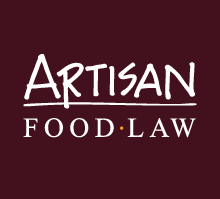Torfaen v Willis - judgement day in 'use by' labelling case
It is rare for a case on food law to reach the Supreme Court. We have followed closely the case of Torfaen County Borough Council v Douglas Willis Limited which raised a point of law of public importance in relation to 'use by' dates on food and judgement was finally handed down last Wednesday, 31 July 2013.
In June 2011 Torfaen’s inspectors visited the premises of Douglas Willis, a company which carries on the business of buying, processing and selling meat products. The inspectors found a number of packages of frozen meat labelled with ‘use by’ dates which had passed. Douglas Willis was tried on 23 charges of selling food “after the date shown in the ‘use by’ date relating to it” contrary to regulation 44(1)(d) of the Food Labelling Regulations 1996.
On 1 September 2011 the Gwent Justices dismissed the charges, accepting a submission made on behalf of Douglas Willis that it had no case to answer. Torfaen had not proved that at the date of the alleged offence the food required a ‘use by’ date, in other words that it was highly perishable and likely after a short period to constitute an immediate danger to human health. There was no evidence as to when the meat had been labelled or frozen. Torfaen appealed, by way of case stated, to the Divisional Court which allowed the appeal, holding that the prosecution did have to show that the food had at some stage been in a state which required it to be labelled with a ‘use by’ date, which had passed, but not that it was in that state at the time of the offence.
Torfaen brought a further appeal to the Supreme Court, submitting that the prosecution had only to show that the respondent was selling food which was the subject of a ‘use by’ label displaying a date which had passed.
The Supreme Court unanimously allowed the appeal, it agreed with Torfaen and adopted a straight forward approach to the matter. It held that under regulation 44(1)(d) it is sufficient for the prosecution to prove that a defendant had food in its possession for the purpose of sale which was the subject of a label showing a ‘use by’ date which had passed.
The judgement of the Court was given by Lord Toulson who, in the course of delivering it, made a number of points:
- On the wording of regulation 44(1)(d) all Torfaen had to prove was that (i) the food was in Douglas Willis’ possession for sale, (ii) that the food had a ‘use by’ date or label ‘relating to’ it, and (iii) that the date shown had passed.
- To read into the regulation an additional requirement that the food was in a highly perishable state at the time of the alleged offence would seriously weaken the regulatory scheme and the protection provided to consumers. It would enable a retailer of perishable food, which had passed its ‘use by’ date to freeze it and then sell it without the consumer knowing how long it had been unfrozen.
- The words ‘relating to’ in the phrase “sells any food after the date shown in a ‘use by’ date relating to it” were synonymous with ‘referring to’. It denoted a factual connection rather than a legal requirement and simply meant that the food sold was the subject of a label with a ‘use by’ date.
- The Divisional Court’s construction of the 1996 Regulations would give rise to practical problems and expense for enforcement. Questions relating to when the marking of the food had been done and the state of the food at the time would be matters unknown to inspectors and realistically might deter prosecutions.
A good result for Torfaen, and an important food law case draws to a conclusion – almost! It means a return to the Magistrates Court for both Torfaen and Douglas Willis since the case is to be remitted to a different panel of justices for a rehearing, this time applying the law as the Supreme Court has determined it to be.
A copy of the full judgement in Torfaen County Borough Council v Douglas Willis Limited [2013] UKSC 59 can be found here.





